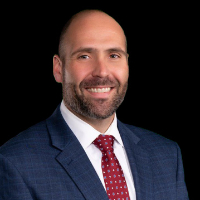Harleyville Misdemeanor Lawyer, South Carolina
Sponsored Law Firm
-
 x
x

Click For More Info:
-
Clekis Law Firm P.A.
171 Church St, Charleston, SC 29401» view mapCriminal Defense Law Clekis Cares. We Listen to You.
Clekis Law Firm has been representing clients for over three decades.
800-725-6591
Not enough matches for Harleyville Misdemeanor lawyer.
Below are all Harleyville Criminal lawyers.
Chad D. Shelton
Criminal, DUI-DWI, Felony
Chad was born and raised in St. Charles, Missouri just outside of St. Louis. He attended undergrad at Valparaiso University in Northwest Indiana and ... (more)
Robert Douglas Robbins
Traffic, Immigration, DUI-DWI, Criminal, Accident & Injury
Status: In Good Standing
 Nicholas Clekis Charleston, SC
Nicholas Clekis Charleston, SC

